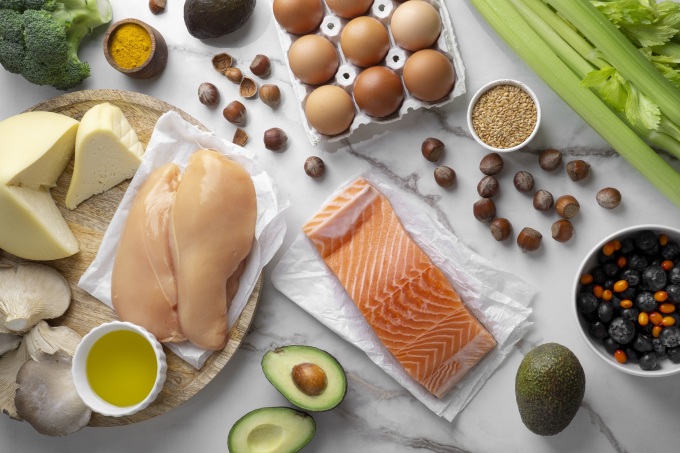There is no limit to the amount of cholesterol you can consume from food each day, but experts emphasize paying attention to the foods you eat every day.
Under previous dietary guidelines, doctors recommended that individuals consume no more than 300 mg of dietary cholesterol per day. Those at high risk of heart disease should consume no more than 200 mg.
However, in recent years, there has been no specific recommended daily limit for dietary cholesterol intake. These changes are due to research showing that dietary cholesterol itself is not harmful and does not contribute to high blood cholesterol levels.
Cholesterol is a natural substance produced in the body and some foods of animal origin. It is also a component of blood lipids, participating in many important processes in the body. The body needs cholesterol to build cells and produce certain hormones.
Although there is no limit to the amount of cholesterol consumed from food every day, experts emphasize that it is important to pay attention to the type of food eaten every day. This plays an important role in keeping cholesterol in the body at a healthy level. Accordingly, in the daily diet, it is necessary to limit the amount of harmful saturated fat, trans fat and sugar because they tend to increase the production of bad cholesterol.
Eating too much saturated fat and trans fat causes the liver to produce too much LDL (bad) cholesterol. This builds up in deposits that clog arteries, so the American Heart Association (AHA) limits saturated fat intake to 5% or 6% of total daily calories.

Cholesterol is abundant in foods of animal origin. Photo: Freepik
Studies have also shown that eating too much sugar can negatively impact cholesterol and increase the risk of heart disease. The AHA recommends no more than 6 teaspoons (100 calories) of sugar per day for women and 9 teaspoons (150 calories) for men. Trans fats should also be limited or eliminated because they are linked to inflammation.
Cholesterol is found in many foods of animal origin, including meat, dairy products, seafood, egg yolks, and butter. Shrimp is high in cholesterol but very low in saturated fat, so it can be included in a heart-healthy diet.
Foods that do not contain cholesterol include: fruits, vegetables, nuts, and whole grains. Foods that are high in saturated fat and should be limited include: fried foods, baked goods including cakes, pastries, and cookies, margarine, popcorn, and ice cream.
Foods containing healthy unsaturated fats that you should eat include: olive oil, peanuts, canola oil, sunflower oil, avocados, nuts especially walnuts, sunflower, chia seeds.
In addition, when buying processed foods and packaged foods, you should also pay attention to the nutritional ingredients and content of the food. The nutrition label shows the amount of nutrients or fat in that food based on the recommended serving size. This is also an important note to maintain low cholesterol levels and keep the heart healthy.
Bao Bao (According to Healthline )
Source link
























![[Photo] National Assembly Chairman Tran Thanh Man visits Vietnamese Heroic Mother Ta Thi Tran](https://vphoto.vietnam.vn/thumb/1200x675/vietnam/resource/IMAGE/2025/7/20/765c0bd057dd44ad83ab89fe0255b783)













































































Comment (0)